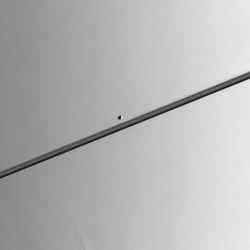
Saturn’s moon Pandora. Image credit: NASA/JPL/SSI Click to enlarge
While close to Saturn in its orbit, Cassini stared directly at the planet to find Saturn’s moon Pandora in the field of view. The F ring shepherd moon is gliding towards the right in this scene. The F ring is thinly visible just above the main rings. Pandora is 84 kilometers (52 miles) across.
Near the lower left, some variation in the height of Saturn’s cloud tops can be detected. This effect is often visible near the terminator (the day and night boundary), where the Sun is at a very low angle above Saturn’s horizon.
The image was taken in visible light with the Cassini spacecraft narrow-angle camera on July 16, 2005, at a distance of approximately 1.3 million kilometers (800,000 miles) from Saturn. The image scale is about 8 kilometers (5 miles) per pixel on Saturn and about 6 kilometers (4 miles) per pixel on Pandora.
The Cassini-Huygens mission is a cooperative project of NASA, the European Space Agency and the Italian Space Agency. The Jet Propulsion Laboratory, a division of the California Institute of Technology in Pasadena, manages the mission for NASA’s Science Mission Directorate, Washington, D.C. The Cassini orbiter and its two onboard cameras were designed, developed and assembled at JPL. The imaging operations center is based at the Space Science Institute in Boulder, Colo.
For more information about the Cassini-Huygens mission visit http://saturn.jpl.nasa.gov . The Cassini imaging team homepage is at http://ciclops.org .
Original Source: NASA/JPL/SSI News Release
